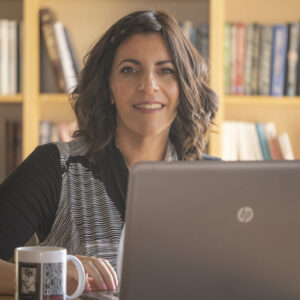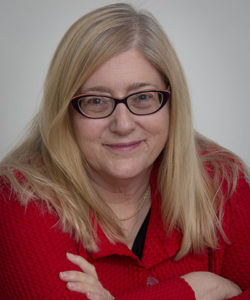Please Stop Apologizing for Contacting Me
Dear Women 50+,
It doesn’t take more than a few clicks to find publications aimed at women over 50 years of age. My first try brings me to “15 Over 50 Magazines & Publications.” The next article is from the Guardian informing me about the “rise of older female writers” and proclaiming that “things are definitely looking up,” presumably for those same women writers who have recently risen, like so many fresh rolls.
There’s “Better After 50” and “Finding Your Voice after 50” and even one publication mentioning their target audience is “limited demographics.” How polite!
But all of these are online resources and I work in real life. As a writing coach and book editor for more than two decades, most of my novel and memoir writing clients are female while men make up about 20 percent of such writers who contact me. And yes, most of my clients are over 50.
I do have amazing male clients, even in their eighties, and I have never once had a man apologize for “only” prioritizing their writing now. Not one time. I have only had male clients who are proud of their life accomplishments and convinced they have something to share with the world. From music therapists to rabbis to educators, these men take themselves off mute and dive right in. There is no reason why my older female clients shouldn’t do the same. I want to champion older female writers, heck I am an older female writer! All of our stories deserve to be shared and celebrated.
One of the reasons that more women apologize today can be understood in one word: Zoom. In a post-Covid-19 world, most clients want at least one Zoom meeting, if not monthly Zoom coaching on their work. All of a sudden, I am not only glancing at a 2D photograph and scanning a bio, but looking at my clients in real time.
They are eyeing me, too. They notice what I wear, compliment me on different hairstyles and accessories (I love hair accessories), laugh at my enormous dog when she comes to join us, and glance around at the background (Framed posters of the covers of my four published novels. Deliberate? Absolutely).
So, the pro of post Covid-19 is that clients in 2023 get to know me better via Zoom than the pre-Covid-19 writers and hopefully that connection makes them more comfortable and we are able to dig deeper together in their writing. The con of all this is now clients are self-conscious and certain that I am studying them as scrupulously as they study me (I am usually more concerned with reviewing my notes on their work and coming up with something genius to say). My meetings are beginning to suffer from very similar introductions, even though I am speaking with women as far apart as Israel, Canada, the UK and the USA. These meeting starters go something like this: Sorry, I know it’s ridiculous that I’m writing now when I’m so old; I’m sorry… (sorry again!) for starting so late with writing but I had my children, careers, ageing parents, etcetera. You must wonder why I’m doing this now at my age is another popular one. Me-time is also tossed in as a way to justify this ludicrous behavior before I can respond.
Please Stop Apologizing for Contacting Me
Well, I’m writing to tell you to stop, please. If anything is ridiculous, it’s these apologetic smiles, aiming your eyes away from the camera, and blushing behaviors. I admire my clients; I learn from them and I enjoy hearing their stories and helping them crack the mysteries of their works. There’s a hidden voice and a puzzle behind every first draft and it’s a privilege to help others find theirs. I have five children, a husband and a college teaching career of my own, so my appreciation comes from experience. I’m a juggler, too.
Aside from Zoom, I have considered other reasons why this is happening more frequently:
- Internalized Ageism. Our society has absorbed the image of a writer as one who is young, urban and hip and looks great in photos and on video. Those are the people we are told we should be learning from. This makes women question their worth in creative pursuits (although I don’t know if older women apologize for taking music, art and dance classes, I suspect they do. I imagine knitting or crocheting gets a pass). This can lead to feelings of imposter syndrome and in a snap, a woman is drowning in the idea that she isn’t worthy to call herself a writer and, moreover, unworthy of an audience (not even me, whom you are paying to show up).
- Self-Imposed Expectations. So many of us created random and often unrealistic goals when we were younger. A home owner by 25, a Ph.D. by 30. A visit to every continent and 20 countries by 40. Master a new language and a new instrument by…. Such unmet expectations may leave many women with a sense of failure and disappointment. If writing was on your list, maybe actually writing triggers this sense that you’re behind before you’ve even begun. The finish line is in the rear-view mirror before you’ve put pen to paper—but that’s an illusion.
Before you apologize, try these three things that will help women push back against ageism in writing and take their rightful place in the literary world:
- Get your power on. Like other feelings, power is contagious and it is often found in groups, even small ones. If you can find a mentor, that can be enough. This will provide you with an experienced audience of one, at least until you have a first draft. Often mentors are found by attending author events or an author class and actually meeting the author. Published authors are like everyone else: some would love to mentor, and for others, it’s not their thing. Other options include joining or forming a local creative writing group, ideally in real life, but online if there are no physical options. Try a book club or start your own, or offer to swap work with someone else, also known as beta reading.
- Another empowerment option is a writing coach. Many writers look for editors but not all editors are writing coaches, and the latter are often better equipped to help you gain confidence. My writing coaching business grew out of fifteen years offering writing workshops both in person and online to groups of half a dozen women, and years of teaching college students. This helped me develop empathy and insight into a wide variety of experiences and backgrounds, particularly as I teach students from all over the world. Look for someone with a wide breadth of involvement that will make you feel more comfortable, no matter where you are from and what you are writing about.
- Get real. Stop and think about how wrong it is to assume that it’s actually younger women with more to share and more wisdom to impart rather than older women, and you’ll laugh along with me. This assumption is a product of modern media and not at all rational. It also doesn’t apply to many other occupations. No one would prefer to get a haircut from someone who just graduated rather than someone who has been cutting hair for decades. Ditto for doctors, lawyers, teachers and dentists, and dozens of other careers. Why would we think a first-time painter is preferable to a seasoned one? We wouldn’t. While it’s true that you may never have written before, as an older woman you have a built-in well of experience to draw from that will add an authenticity to your writing that a younger person simply cannot imitate.
In conclusion, while I have not noticed any difference in approach between men and women when it comes to publication, I have observed this glaring difference in process for many women, who must challenge their own internalized ageist assumptions and take their rightful place as creators. When you do get writing, find a group, a writing coach or a mentor who can encourage you to break away from ageist tropes about older women and showcase the multi-faceted experiences of women over fifty.
You can find Gila on her website here.



2 Responses
Thank you so much for hosting me on your site! It’s been a pleasure to work with you, Stella.
And likewise, Gila! All best wishes.